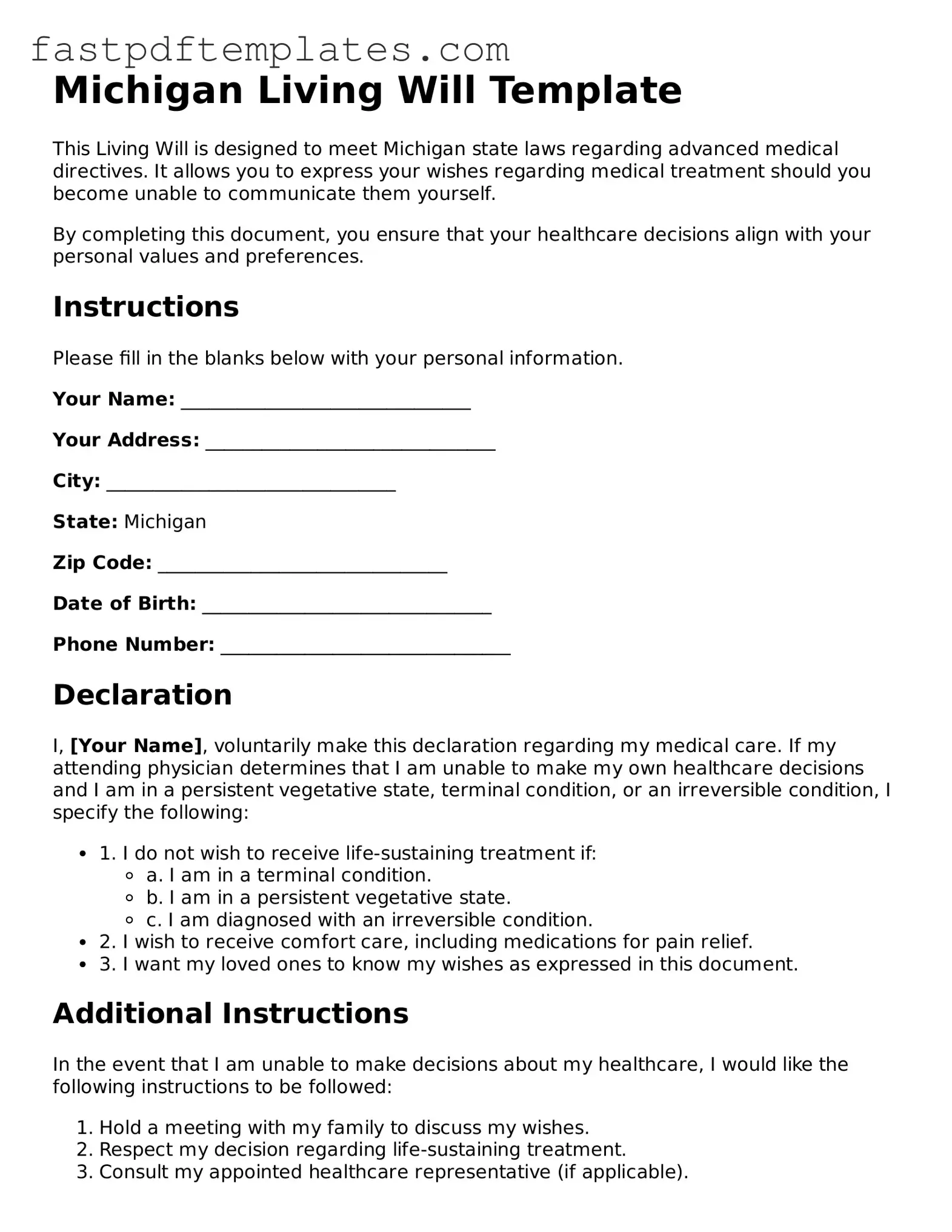Attorney-Approved Michigan Living Will Document
A Michigan Living Will form is a legal document that allows individuals to express their wishes regarding medical treatment in the event they become unable to communicate those wishes themselves. This form plays a crucial role in ensuring that a person's healthcare preferences are honored, particularly in critical situations. By completing a Living Will, individuals can provide guidance to their loved ones and medical professionals, making difficult decisions easier during challenging times.
Access Document

Attorney-Approved Michigan Living Will Document
Access Document
Your form still needs completion
Complete your Living Will online and download the final PDF.
Access Document
or
Click for PDF Form
